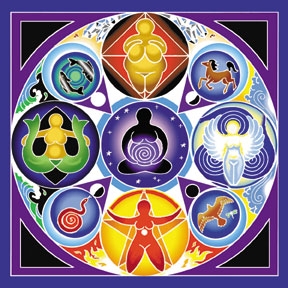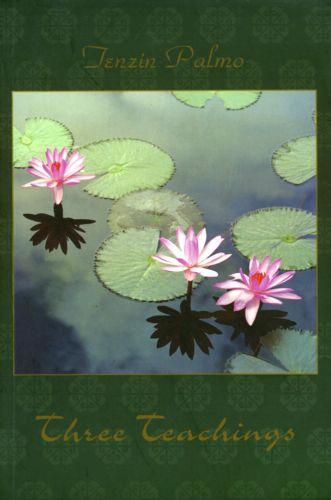Philosophy
JANUARY 31, 2012
Three Natures Of Karma
Posted by Dorothy under Community Interests, Interesting Reads, Philosophy![]() 2 comments
2 comments
Karma has been a very commonly used word these days with the familiarity of ‘good’ and ‘bad’ karma. Karma takes the meaning of an ‘act’ or ‘deed’ which is not only limited to physical actions but also encompasses mental actions. It is governed by the universal principle of cause and effect, action and reaction. Simply put, if something good is done, you will be ‘rewarded’ and if something bad is done, you will be ‘penalized’. It has weight when done consciously, despite of whether it was intended or not ( some say that animals and children are not bounded by karma as they do not have the consciousness as to what is right or wrong ) . Therefore, I would like to emphasise that karma and fate are entirely unrelated as karma entirely results from one’s actions, whereas fate refers to forces outside your control or unavoidable.
Karma refers to the totality of our actions and reactions, not only in this lifetime but also previous and all of this determine our future ( near or next life ). With that, we should note that there are four ways that karma can be produced:
a) through thoughts
b) through words
c) through our own actions
d) through actions performed by others under our instructions
We should then keep in mind that not all karmas rebound immediately. Let me introduce to you the three types of karma known traditionally in the Hindu religion.
SANCHITA KARMA
- currently fructifying
- collected karma from one’s past lifetimes but has not been fully effected
- it is being experienced now but the stock of sanchita lasts a few lifetimes
AGAMI KARMA
- growing and developing
- actions created during your current life which will be added to your ‘sanchita karma’, be it positive or negative
- for example, you can do good and add on to your stock of good karma to negate the bad karma in the next lifetime
KRIYAMANA KARMA
- instant karma
- it is actions created in this lifetime and worked off immediately in this lifetime too
- for example, when you hit the red light and you get a ticket from the police
In a nutshell, to experience good karma and a better life ahead, we should be mindful of our actions towards others at all times.
So in everything, do to others what you would have them do to you – Matthew 7:12
and
How people treat you is their karma; how you react is yours. ~Wayne Dyer
4N 5D Langkawi Yoga and Nature Retreat
2N3D Langkawi Yoga and Nature Retreat
JANUARY 27, 2012
The Three Teachings – First: Retreat
Posted by Dorothy under Community Interests, Interesting Reads, Natural Highs, Philosophy, Wellness, Yoga Retreat![]() no responses
no responses
Few years ago, a friend of mine lent me a book entitled Three Teachings. It consists of three talks delivered by Tenzin Palmo in Singapore in the year of 1999. Born in London in 1943, she was ordained as a Buddhist nun in 1964. Her talks were aimed at an ordinary audience of people with families,professions and normal social obligations. Therefore, in order to make Dharma appeal to these people without expecting them to leave their social responsibilities, Tenzin Palmo retracts the ‘over-emphasism’ of sitting meditation as the sole means to enlightenment. Instead, she points out that when one lives his or her everyday lives with awareness and open heartedness, that is the very basis of a Dharma practice. Tenzin not only delivers her teachings in plain language and with compassion, but makes it lively with humour.
In this month’s blog post, I have attached a downloadable pdf file of her first teaching entitled “Three Teachings- Retreat“. The second and third teachings will be uploaded in the February and March blog posts. Enjoy:)
DECEMBER 30, 2011
Defining Inner Peace
Posted by Dorothy under Community Interests, Interesting Reads, Natural Highs, Philosophy, Wellness![]() no responses
no responses
The world over have been talking about having or creating inner peace. What inner peace means varies between individuals. With the growing consumerism, a big number of people will say that having lots of money gives them a certain feeling of peace. They often feel that financial stability allows them to enjoy life’s luxuries and reduces stress. To achieve such financial stability, some turn to forex trading with best forex brokers, seeking opportunities to grow their wealth. How far does one go with obtaining money has no ends but that certainly has nothing to do with obtaining inner peace. Whether you are rich, poor or of middle class, healthy or sick, inner peace can still be yours. Here’s a guide to the meaning of inner peace:
The 12 Symptoms Of Inner Peace” © 1984 by Saskia Davis
- A tendency to think and act spontaneously, rather than from fears based on past experiences
- An unmistakable ability to enjoy each moment
- A loss of interest in judging self
- A loss of interest in judging others
- Loss of interest in conflict
- A loss in interest of interpreting the action of others
- A loss of ability to worry
- Frequent overwhelming episodes of appreciation
- Contended feelings of connectedness with others and with nature
- Frequent attacks of smiling through fear
- Increasing susceptibility to love extended by others, as well as the uncontrollable urge to extended it
- An increasing tendency to let things happen, rather than to manipulate them
Loka samasta sukino bhavantu
(May the entire universe be filled with peace and joy;love and light)
Category
- Community Interests (55)
- Interesting Reads (32)
- Langkawi (3)
- Media Features (8)
- Natural Highs (29)
- Philosophy (41)
- Welcome (1)
- Wellness (42)
- Yoga Retreat (3)
Archive
- February 2014 (1)
- December 2013 (1)
- November 2013 (1)
- September 2013 (1)
- August 2013 (1)
- July 2013 (1)
- June 2013 (1)
- May 2013 (1)
- April 2013 (1)
- March 2013 (1)
- February 2013 (2)
- January 2013 (2)
- December 2012 (1)
- November 2012 (2)
- October 2012 (2)
- September 2012 (1)
- August 2012 (2)
- July 2012 (2)
- June 2012 (1)
- May 2012 (2)
- April 2012 (2)
- March 2012 (2)
- February 2012 (3)
- January 2012 (2)
- December 2011 (3)
- November 2011 (2)
- October 2011 (2)
- September 2011 (2)
- August 2011 (2)
- July 2011 (2)
- June 2011 (2)
- May 2011 (2)
- April 2011 (2)
- March 2011 (2)
- February 2011 (2)
- January 2011 (2)
- December 2010 (2)
- November 2010 (2)
- October 2010 (2)
- September 2010 (2)
- August 2010 (1)
- July 2010 (2)
- June 2010 (2)
- May 2010 (4)
- April 2010 (3)
- March 2010 (4)
- February 2010 (4)
- December 2009 (1)
- November 2009 (3)
- October 2009 (4)
Upcoming Retreats
7 – 9 March 2014
Langkawi
Yoga at sunrise by a beautiful sandy beach to a pampering session at the spa or a guided nature tour; not to be missed, the sunset yoga session at the yoga deck of our retreat centre amongst tropical trees, made lively with chirping birds, curious monkeys and fluttering butterflies.
weekend yoga retreat package

